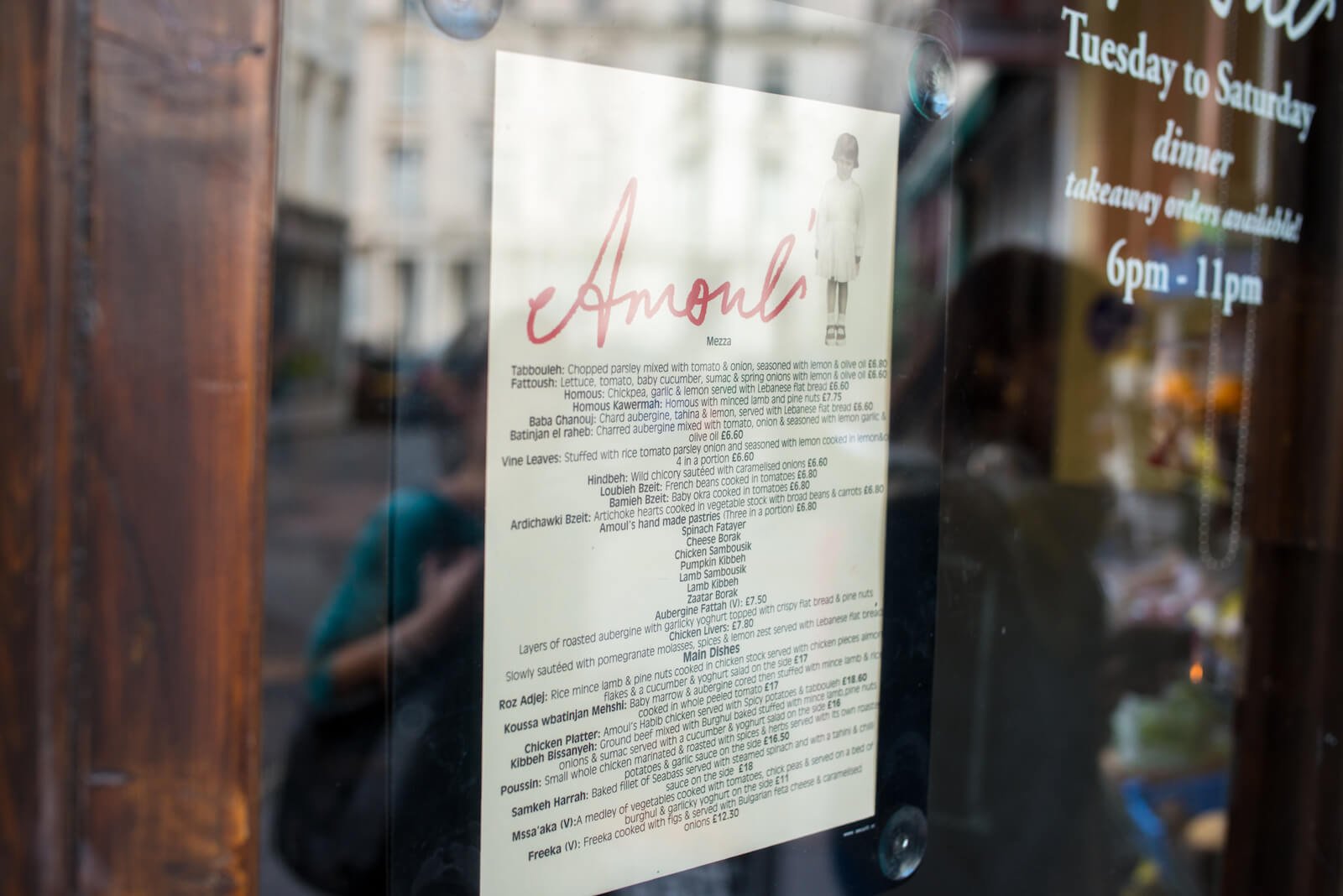Consuming Passions: Freekeh
Amoul Oakes is a London-based chef, originally from Lebanon. Her restaurant in London’s Maida Vale, Amoul’s, was open from 2003–2018 and was acclaimed by critics including Jay Rayner for its soulful home-cooked dishes, which reflected Amoul’s recollections of the food made by her mother and grandmother. Her book, Amoul: Some family recipes is now available in full on ckbk. In this contribution to the Consuming Passions series, Amoul shares her enthusiasm for the ancient grain freekeh, and offers a bonus recipe for freekeh served with chickpeas and spinach.
by Amoul Oakes
Freekeh, an old grain with roots deep in history, has not only stood the test of time but has also been an integral part of my upbringing. While chefs in the Western world are only now venturing into creative experiments with this ancient grain, its significance in my life is deeply rooted in the cherished recipes passed down by my mother. Whether it’s a hearty meat-based dish or a flavourful vegetarian creation, these recipes have been a constant presence on our dining table, no matter where in the world we find ourselves.
This cherished grain transports me back to the idyllic days of my childhood in the enchanting southern region of Lebanon. It was a time when my aunts and my mother’s closest friends would converge at our home, embarking on the treasured tradition of crafting the Mouneh. The term ‘Mouneh’ refers to preserving the vibrant, seasonal harvest for the forthcoming winter, and is an integral part of our culinary heritage.
Among the bounty of ingredients meticulously prepared as part of the Mouneh was freekeh, a time-honoured grain plucked while still green, then charred and roasted amidst the fields open flames. As it cooled, the grain was rubbed to shed its husk, thus earning the name freekeh, derived from the word “farak” signifying the act of rubbing.
My affection for freekeh runs deep, it graced our dining table in countless incarnations, both vegetarian and with meat or with succulent chicken. One dish that holds a special place in my heart is the one my mother would expertly craft for Sunday lunches or elegant dinner parties – an exquisite ‘Ablama’ accompanied by yoghurt and served on a bed of Freekeh.
Ablama is a culinary masterpiece, in which tender baby zucchinis are delicately cored, generously filled with a delectable mixture of minced meat and pine nuts, kissed with the fragrant notes of cinnamon and black pepper, and then lovingly stewed in the creamy embrace of goat’s yoghurt. The freekeh would be prepared in a rich meat or chicken broth, infusing it with mouthwatering flavours.
Another culinary treasure from our table featured freekeh cooked alongside lamb shanks and chicken. These meats were cooked to perfection, with the savoury broth serving as the essence for the freekeh. The dish would culminate in a spectacular presentation, crowned with an assortment of roasted pine nuts, almonds, and pistachios.
During my time as a chef, I also had the pleasure of sharing a beloved vegetarian variation of this dish at my restaurant. It showcased the seasonal allure of figs, which were carefully simmered with freekeh in a flavourful vegetable broth. To elevate the experience, I paired it with the creamy richness of Bulgarian feta cheese and the sweet allure of caramelised onions, creating a symphony of flavours that delighted the senses.
Recipe: Spinach and Chick Pea Freekeh
Serves 4
Ingredients
1 cup freekeh
1/2 cup boiled chick peas
1 bunch of fresh spinach (washed and chopped)
2 onions thinly sliced
2 ripe red tomatoes, finely diced
1 cup tomato juice or passata
3 cloves of garlic, sliced
1 leek, washed and chopped
A few sprigs of fresh coriander (chopped) or 1 tsp dried coriander
1 cup vegetable stock
Juice of 1 lemon
1 tsp ground cumin
2 tbsp vegetable oilA handful of roasted pine nuts
Method
Begin by cleaning and rinsing the Freekeh under cold water then draining it.
In a large pan, heat the vegetable oil over medium heat. Add the sliced onions and cook until translucent. Add the sliced garlic and chopped leeks to the pan, sautéing them until they turn fragrant and tender.
Stir in the cumin and the diced tomatoes, letting them cook for a few minutes until the tomatoes soften.
Add the Freekeh to the pan, stirring it well to coat the flavourful mixture, followed by the tomato juice (or passata), and the vegetable broth, then bring the mixture to a gentle boil.
Reduce the heat to low, cover the pan, and simmer for about 20-25 minutes, or until the Freekeh becomes tender and absorbs the liquid.
Add the boiled chick peas, chopped spinach, and the coriander to the pan. Stir well and let it simmer for an additional 5-7 minutes or until the spinach wilts.
Squeeze the lemon juice over the mixture, stirring to combine the flavours.
Serve the Freekeh garnished with a handful of roasted pine nuts for an added crunch and delightful flavour.
Some of my favourite freekeh recipes on ckbk include Bethany Kehdy’s Freekeh with Lamb and Rhubarb which combines succulent lamb and the tantalising tartiness of rhubarb, and Super Freekeh Quails from Anatolia by David Dale and Somer Sivrioglu — a symphony of flavours with a complexity that is hard to resist. Tomato Freekeh by Mark Hix in Mark Hix on Baking is another great way to prepare and savour this flexible grain.
For more of Amoul Oakes’s Lebanese recipes see her cookbook Amoul: Some family recipes, which is available in full on ckbk. Find out more about Freekeh in Ruth Nieman’s book, Freekeh, Wild Wheats and Ancient Grains, also available on ckbk.
Recipes from ckbk’s 12 Ways with Freekeh
More Consuming Passions
Omani supperclub host and food writer Dina Macki explains why she is known on Instagram as The Pomegranate Queen
Food historian Sam Bilton on the world’s most previous spice, the subject of her book Fool’s Gold.
Jenny Jefferies, author of For the Love of the Land, celebrates the incredible versatility of chicken.







